Intel Haswell vs AMD Richland head-to-head
We test both sets of architecture to see which is best suited for your needs.

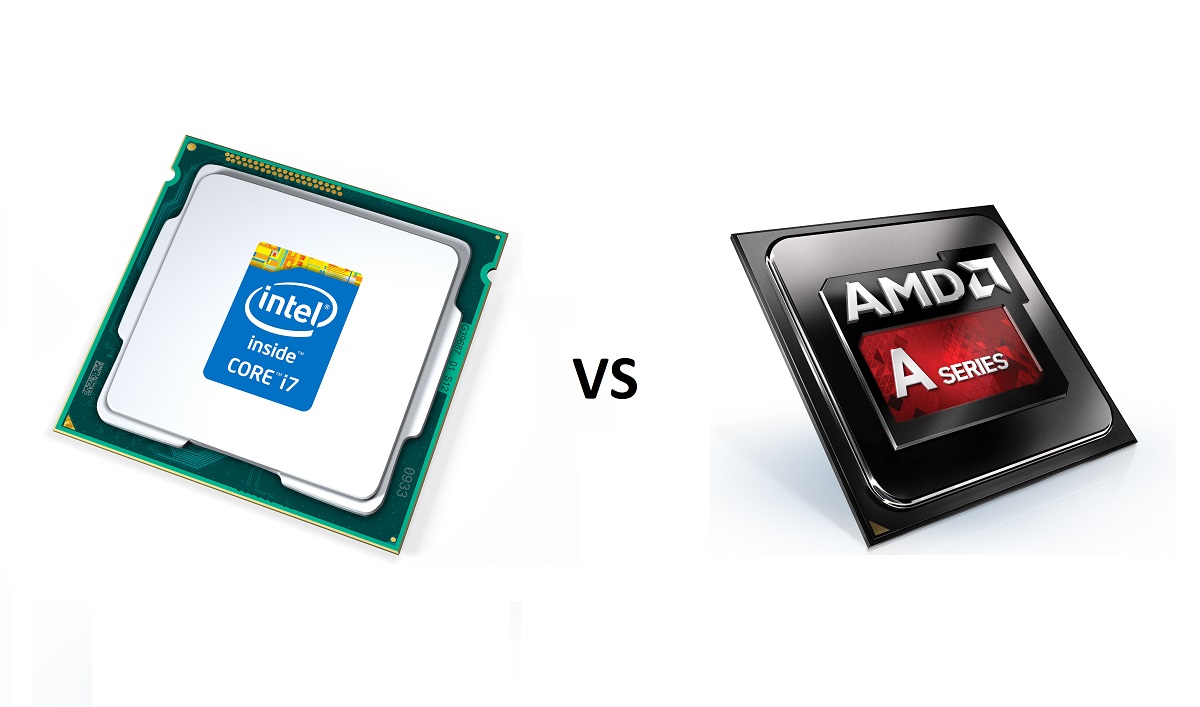
Do you need to upgrade?
Haswell and Richland improve on their predecessors in every department but, in most cases, the leaps forward are incremental. That raises one important question: if you're currently using an Ivy Bridge or Trinity-based PC in your office, is it worth upgrading?
In most cases no. The chips themselves aren't cheap, and the addition of a new processor socket means you'll have to fork out for a new motherboard, too. Instead, wait for another year: Intel's next generation, Broadwell, will make the move to 14nm, and should offer a significant performance gain over Ivy Bridge.
However, for mobile computing the battery life improvements gains shouldn't be sniffed at - and the prospect of 8+ hours on the move with an Ultrabook is realistic with Haswell.
If your work system is based on Sandy Bridge chips or any older parts, Haswell will significantly boost your computing power, and newer chipsets will add more ports and sockets to your PC. The leap forward in graphics will be especially noticeable, and power consumption and electricity bills will be reduced.
The situation is a little different when it comes to AMD. If you've got a Trinity processor then the performance gain isn't a huge leap forward, but the upgrade path is relatively simple: you don't need a new motherboard, so a new APU can just slot into your existing PC.
If you're using a standard AMD processor rather than an APU, chances are you're using a very old, weak part and chances are your PC is struggling. If you're stuck with one of these Athlon or Phenom chips, then we recommend an upgrade. If you've got money to burn and are more interested in processing performance, then it's worth switching to Intel if you want a more balanced experience on a budget, then an APU is ideal.
Sign up today and you will receive a free copy of our Future Focus 2025 report - the leading guidance on AI, cybersecurity and other IT challenges as per 700+ senior executives
Conclusion
Haswell generates plenty of column inches for Intel thanks to its dominance at the top of the processor market but, unless you're going to make full use of an expensive Core i7-4770K or i5-4670K, it's worth looking on the other side of the fence.
After all, there's plenty to like about AMD's top-end A10-6800K APU. It's got more graphical power than anything Intel can muster, it's more frugal, and it's much cheaper than Intel's top-end Haswell chips. It can't quite match Haswell when it comes to pure processing power, but that's its only weakness and, for many, it'll be more than good enough.
It's not as one-side as you might think. If you want pure processing power and don't mind the cost then Haswell is for you. If it's a balanced experience you're after and graphics and budget are the priority then a top-end APU is the chip of choice.
Mike Jennings has worked as a technology journalist for more than a decade and has been fascinated by computers since childhood, when he spent far too long building terrible websites. He loves desktop PCs, components, laptops and anything to do with the latest hardware.
Mike worked as a staff writer at PC Pro magazine in London for seven years, and during that time wrote for a variety of other tech titles, including Custom PC, Micro Mart and Computer Shopper. Since 2013, he’s been a freelance tech writer, and writes regularly for titles like Wired, TechRadar, Stuff, TechSpot, IT Pro, TrustedReviews and TechAdvisor. He still loves tech and covers everything from the latest business hardware and software to high-end gaming gear, and you’ll find him on plenty of sites writing reviews, features and guides on a vast range of topics.
You can email Mike at mike@mike-jennings.net, or find him on Twitter at @mikejjennings
-
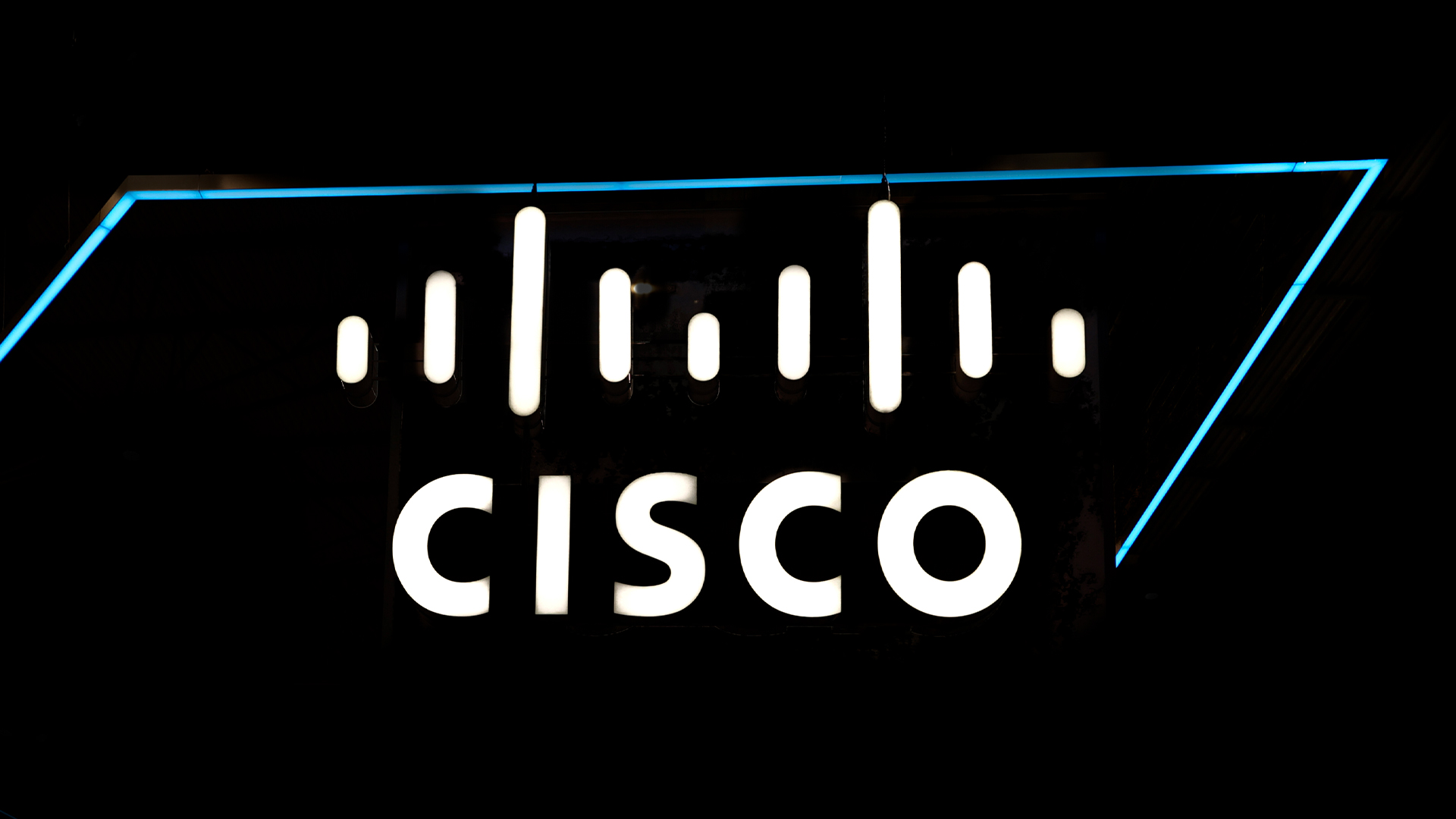 Cisco sounds alarm over AsyncOS zero-day flaw
Cisco sounds alarm over AsyncOS zero-day flawNews The zero-day vulnerability affects Cisco's Secure Email Gateway and Secure Email and Web Manager appliances – here's what we know so far.
-
 EU lawmakers want to limit the use of ‘algorithmic management’ systems at work
EU lawmakers want to limit the use of ‘algorithmic management’ systems at workNews All workplace decisions should have human oversight and be transparent, fair, and safe, MEPs insist
-
 Nvidia’s Intel investment just gave it the perfect inroad to lucrative new markets
Nvidia’s Intel investment just gave it the perfect inroad to lucrative new marketsNews Nvidia looks set to branch out into lucrative new markets following its $5 billion investment in Intel.
-
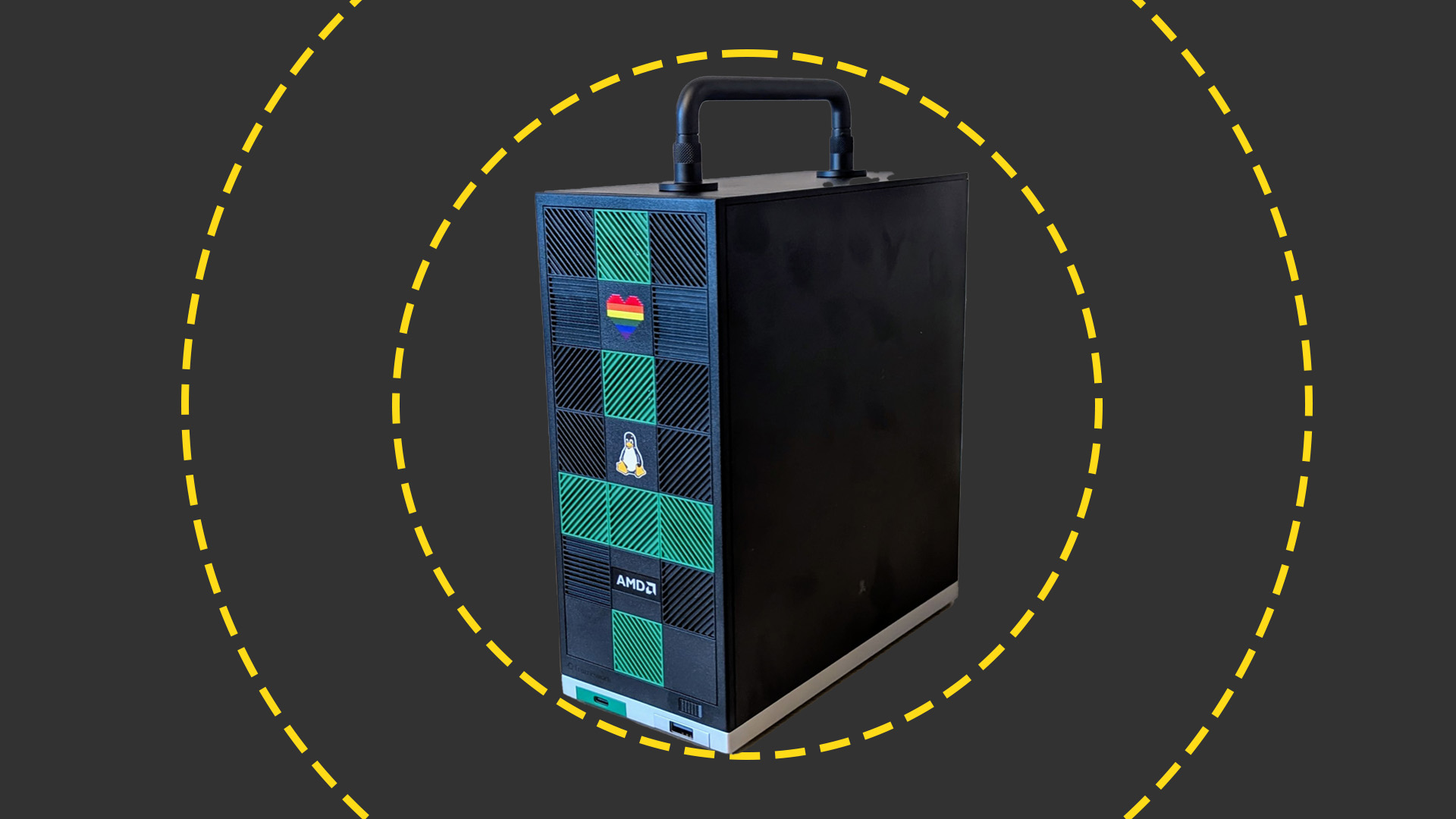 Framework Desktop review: Modular design and ferocious AMD performance
Framework Desktop review: Modular design and ferocious AMD performanceReviews AMD's Ryzen Max CPUs debut in Framework's impressive modular self-build small-form desktop PC
-
 The US government's Intel deal explained
The US government's Intel deal explainedNews The US government has taken a 10% stake in Intel – but what exactly does the deal mean for the ailing chipmaker?
-
 US government could take stake in Intel as chip giant's woes continue
US government could take stake in Intel as chip giant's woes continueNews The move would see increased support for Intel’s manufacturing operations
-
 Dell says Windows 11 migration is a prime opportunity to overhaul ageing PC fleets – and AI devices are in the spotlight
Dell says Windows 11 migration is a prime opportunity to overhaul ageing PC fleets – and AI devices are in the spotlightNews The shift to Windows 11 means IT leaders can ditch old tech and get their hands on AI PCs
-
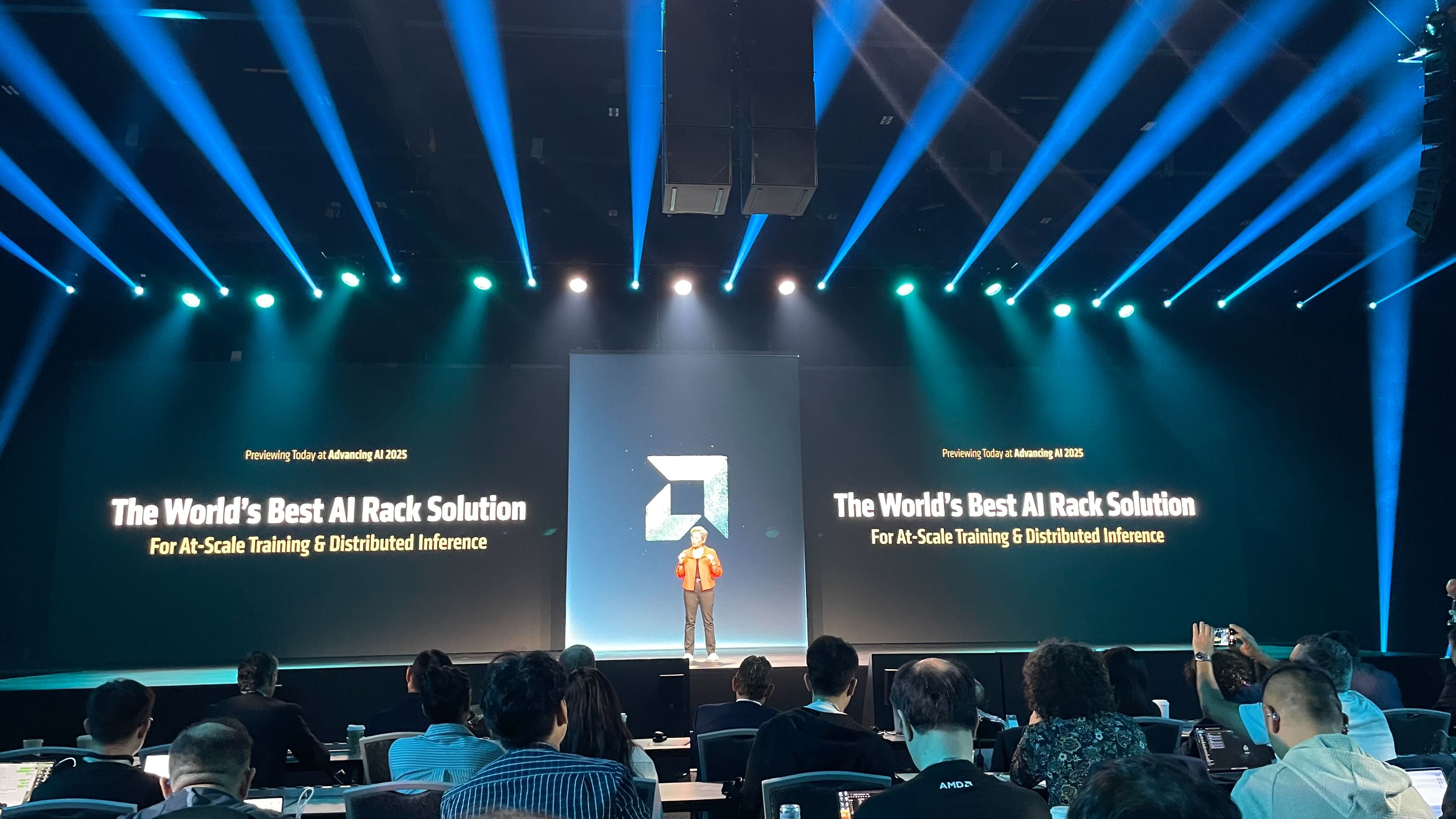 AMD chief exec Lisa Su says its new Helios AI rack is a 'game changer' for enterprises ramping up inference – here's why
AMD chief exec Lisa Su says its new Helios AI rack is a 'game changer' for enterprises ramping up inference – here's whyNews The integrated hardware offering will feature upcoming AMD chips and networking cards
-
 AMD Advancing AI 2025: All the latest news and updates from San Jose
AMD Advancing AI 2025: All the latest news and updates from San JoseFollow all the news and updates live from AMD's latest Advancing AI conference
-
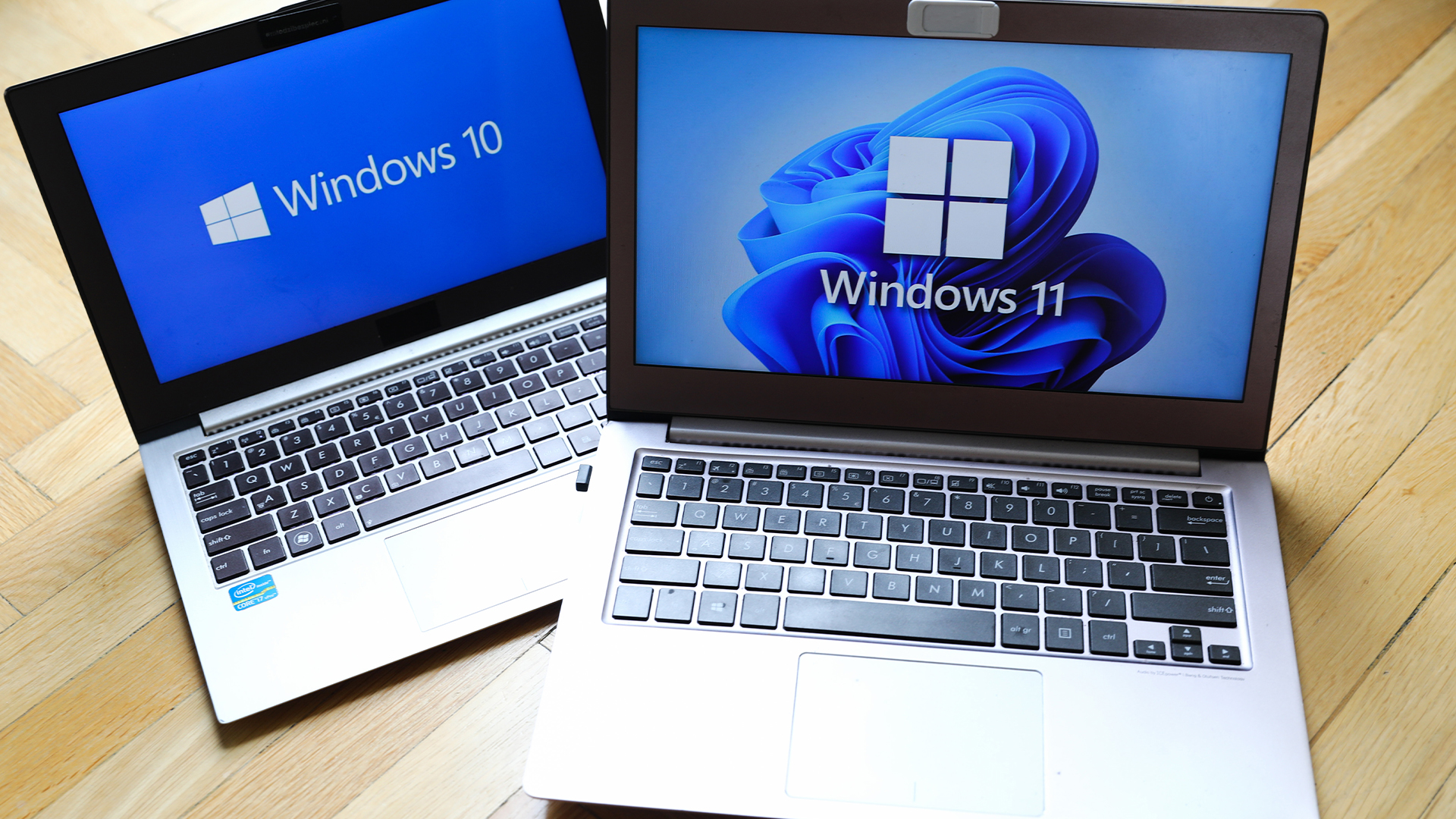 What enterprises need to be Windows 11 ready
What enterprises need to be Windows 11 readySupported Hardware purchasing will play a key role in delivering success during the Windows 11 migration rush
